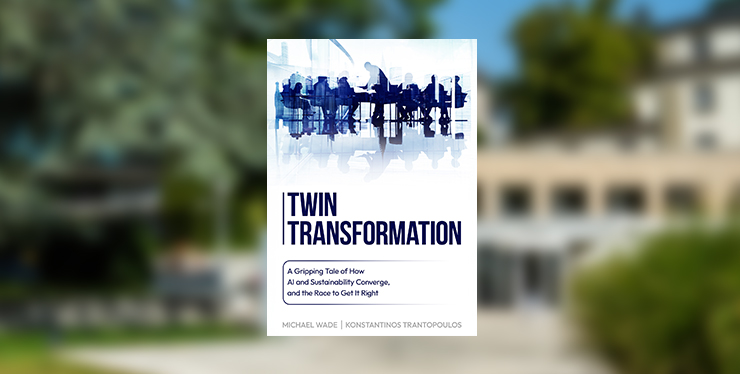
Rethinking capitalism: An opportunity for Switzerland
The verdict is in: to avoid further disaster for our planet, we have to reform capitalism. And fast. At the top of the list is managing our natural resources more efficiently and equitably. To succeed, all sectors have to be on board: science and technology to find creative solutions; national and international governments to legislate; companies to change their business models; and consumers and citizens to changes their habits.
However, even with the best intentions, if all of these players don’t work together, our chance of success (and survival) seem slim. Changes in consumer behavior can’t move the needle on their own, nor can any isolated technology, government reforms, or companies acting alone.
This idea was pioneered last century by the scholar Karl Polanyi, who already challenged the prevailing fragmented view of neoliberal ‘Chicago’ economists. He clearly saw that it was time to focus much more on collective action than individual efforts. To work together technologies must be combined, governments have to legislate at the international level, companies need to develop new types of coalitions, and consumers have to get organized.
We’re starting to see some action. International organizations and conventions (the UN’s SDGs, COP, IPCC, UNCCD) focused on sustainability, the environment, climate change, desertification and other crucial topics are playing a bigger role than ever in influencing governments. Companies are creating new types of coalitions, including Moving’On in the area of sustainable mobility; Livelihoods in subsistence agriculture; and Action Tank-Social & Business, which is bringing together big companies and NGOs to develop business models to tackle poverty. These initiatives – and others like them – must be encouraged.
This brings us to why Switzerland has a historic opportunity. The country hosted the League of Nations a century ago, the first COP event on climate change 40 years ago, and welcomed the World Business Council for Sustainable Development 25 years ago.
By organizing, hosting, and supporting these types of collaborative movements, Switzerland can spearhead a movement of businesses coming together to create impact in their sectors.
One company alone can’t change the world. But wider coalitions can break the mold of traditional capitalism and make it work for all.
And Switzerland can lead the way.
This article was originally published in Tribune de Genève
Research Information & Knowledge Hub for additional information on IMD publications
The B case outlines how, by early 2025, Isabella Phoenix's initial vision for HP's Amplify Impact sustainability program had grown into a global initiative involving 4,800 partners in 48 countries. The program surpassed its goals, enrolling 59 of ...
The A case in this two-part series outlines the challenges Isabella Phoenix faced in designing a global sustainability program for HP's vast network of channel partners in just 12 weeks with only one team member and limited resources. The initiati...
In today’s boardrooms, two themes dominate: rapid technological advancement and the growing urgency of environmental accountability. But a new source of competitive advantage is emerging, not from A.I. or sustainability alone, but from the deliber...

In President Trump’s second term, a variety of executive actions have reversed social progress. Withdrawing from the Paris Climate Agreement presents a significant challenge to bending the global emissions curve since it is one of the world’s larg...
in I by IMD
Research Information & Knowledge Hub for additional information on IMD publications
Research Information & Knowledge Hub for additional information on IMD publications
Case reference: IMD-2681 ©2025
Research Information & Knowledge Hub for additional information on IMD publications
in I by IMD
Research Information & Knowledge Hub for additional information on IMD publications
Research Information & Knowledge Hub for additional information on IMD publications
in I by IMD
Research Information & Knowledge Hub for additional information on IMD publications
in I by IMD
Research Information & Knowledge Hub for additional information on IMD publications
Research Information & Knowledge Hub for additional information on IMD publications
Research Information & Knowledge Hub for additional information on IMD publications
in Stanford Social Innovation Review Online 2 June 2025
Research Information & Knowledge Hub for additional information on IMD publications







